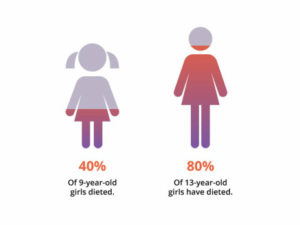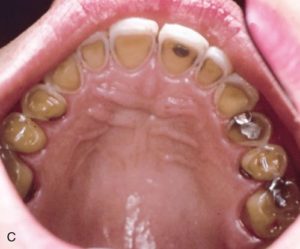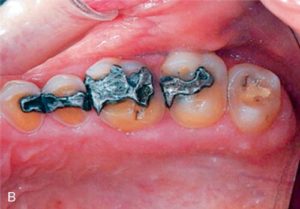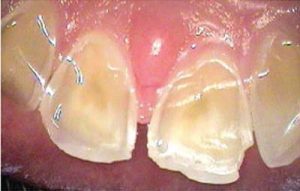A new school year can mean adjusting to new teachers, new social groups, intimidating course work, and lots of anxiety. With social media and images of the “perfect” body/hair/makeup/clothes, those teen and pre-teen years can turn into a nightmare of poor confidence and a warped body image. The pressure to excel and be perfect seems heavier now than it has been for previous generations. Some students may engage in high risk eating habits to soothe anxiety, lose weight, or just gain control over something in their life. Eating disorders are scary and potentially life threatening, and they have serious effects on a sufferer’s oral health.
Warning Signs
Dramatic weight loss is an obvious warning sign. However, weight changes from many eating disorders may not be immediately apparent. People suffering with eating disorders may become very skilled at hiding their weight loss under baggy or layered clothing. They will likely hide the fact that they are skipping meals, for example saying they ate earlier or they have plans to eat later. Severe mood swings, fatigue, or undue focus on physical appearance are also possible warning signs. Watch for preoccupation with weight, calories, and fat or carbohydrate contents of certain foods.
Keep in mind that eating disorders don’t just mean anorexia. In fact, many types of disordered eating may seem “healthy” at first glance. Extremely strict dietary limitations and fixation on only eating “clean” food may also indicate disorders such as orthorexia. Keep an eye out for food rituals like excessive chewing, refusing to let foods touch, or only eating a certain food or food group. Frequent, obsessive shifts between highly restrictive diets such as keto may also suggest a possible eating disorder.
Oral Health Effects
Oral health effects can be one of the most visible signs of disordered eating aside from weight loss. Bulimia may have the most drastic effects on the teeth and gums. Frequent exposure to stomach acid erodes the enamel and can even cause severe gum recession, basically burning the gum tissue away over time. The front teeth may become translucent, weak, brittle, and chip or break easily. Lesions may appear on the throat or tongue from tubes or instruments to induce gagging.
For anorexic and orthorexic patients, nutrient deficiencies can lead to severe decay. Calcium and vitamin D are essential for strong enamel. Additionally, lack of proper nutrients can cause gum disease. Gums may appear swollen, bright red, and shiny, and they will probably bleed easily. Salivary glands may swell and cause chronic dry mouth. For patients who purge frequently, the glands may become so swollen they will be visible to others and cause further emotional distress.
Degenerative arthritis of the jaw joint is another frequent side effect of eating disorders. Arthritis can cause severe pain, headaches, and difficulty moving the jaw.
Recovery and Coping
From an oral health care perspective, we want our patients to know that we are here to help, and everything you say during an appointment is strictly confidential. We want patients struggling with eating disorders to first focus on the easy part of protecting their oral health: brush and floss well every day, and make sure you get plenty of fluoride on your teeth. We can give you prescription rinses and tooth pastes to help protect your teeth, and make a plan to restore cavities or eroded teeth as soon as your recovery begins. Let us know if you are concerned about aspects of your eating disorder that may be harming your oral health. We may be able to help make your recovery easier and more comfortable.
If you are concerned about your child or a loved one whom you believe may have an eating disorder, keep in mind that many eating disorders start with anxiety and stress. Remember that males can also suffer from disordered eating. Try to be understanding and gentle when you approach the topic, and make sure your loved one knows you are a safe person to talk to. Recovery is possible, and your dental health team here at Lake Baldwin Dental is here to help.






